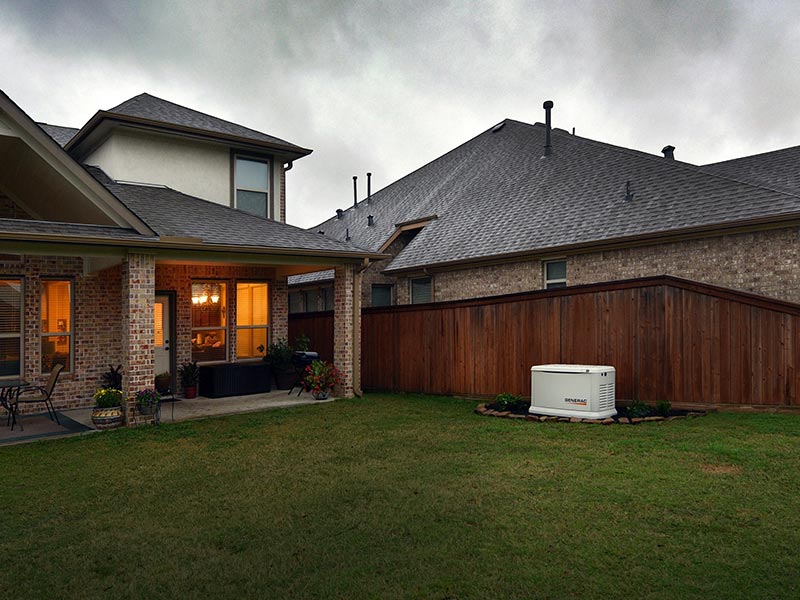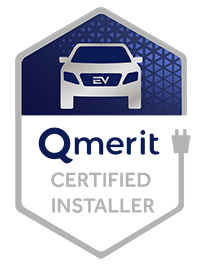For the majority of the year, the thought of losing power or owning a generator won’t even cross your mind. But in New Jersey, sudden thunderstorms, snow blizzards, and high winds can knock out your home’s power any day of the year, often without warning. Chances are, you’ve experienced the annoyance of a power outage at least once during your time as a New Jersey homeowner and are fully aware of the inconvenience.
The inability to see once the sun sets without a flashlight, the worry of losing hundreds, even thousands, of dollars in spoiled food, and the frustration of not being able to work properly without Wi-Fi are nightmare scenarios that may already be your unfortunate reality. To avoid this nuisance, consider buying your home a generator, so when your neighbors’ houses go dark, you can turn on your lights and enjoy life without worry.
If you’re considering buying a generator for your home but aren't sure what kind suits you, keep reading as we break down the best generators for your home.
Why You Need a Generator for Your New Jersey Home
Picture this: you're in the middle of a late workday from home, your kids have started watching a movie, and your partner is cooking dinner. Suddenly, everything goes dark. You look out the window to see all of your neighbors' windows have gone dark too. The power's out, and there's no telling when it'll be back on. If this scenario made your blood pressure rise, it's time for you to buy your home a generator so that when the lights turn off and the world goes dark, you can have peace of mind knowing that your house will stay lit, the Wi-Fi will still work, the fridge will run, and the HVAC will hum, even during the worst storms.
Alongside peace of mind, generators offer benefits like:
- Reliable backup power during blackouts
- Protection for perishables and sensitive electronics
- Comfort and safety in extreme temperatures
- Continued productivity if you work from home
If you weren't sure before about getting a generator but have been sold now, keep reading as we go over the types of home generators and their pros and cons.
Types of Home Generators: Pros and Cons
Not all generators were created equal, and the one you need depends on how much power you want, how hands-on you're willing to be, and how much you’re ready to invest. Whether you're looking to power a few essentials or keep your entire home running smoothly, here’s a breakdown of the main types of home generators and what they bring to the table.
1. Portable Generators
Portable generators are exactly what they sound like: small, movable units you can roll out when the power goes down. They’re best for short-term outages, powering up select essential appliances, and for budget-conscious homeowners. Portable generators run on gasoline and need to be manually started, which means you’re going to have to venture into the pouring rain, freezing cold, or whipping winds to power up your generator. Portable generators won’t power your whole house, but they’re perfect for keeping the fridge, lights, or Wi-Fi running during a short blackout.
Pros:
- More affordable upfront
- Easy to store and use
- Ideal for powering a few essentials
Cons:
- Needs to be manually started
- Requires gasoline and regular refueling
- Cannot be used indoors due to carbon monoxide risk
- Wont Power your whole house
- Only a Short-Term Fix
2. Inverter Generators
Inverter generators are a more advanced version of portable models. They produce cleaner power, making them safer for electronics like laptops, TVs, and medical devices. They’re best for those who want a quiet operation and don’t want to hear the buzz of a larger generator. Inverter generators work perfectly for camping and are safe to use with sensitive electronics. They’re more fuel-efficient than traditional portables but typically have a lower power output so you won’t be able to power your whole home.
Pros:
- Quiet operation
- Fuel-efficient
- Safe for sensitive electronics
Cons:
- Higher cost than standard portables
- Limited power, best for smaller setups
3. Standby (Whole-House) Generators
Standby generators are permanently installed outside your home and wired directly into your electrical system. They’re perfect for full-home backup, those who experience frequent outages, and hands-off convenience because they automatically kick on when the power goes out and can run for days using natural gas or propane. If you want seamless backup power with zero hassle, this solution delivers exactly what you need.
Pros:
- Automatic power during outages
- Can run entire home systems
- Uses existing natural gas or propane lines
- Long-lasting and powerful
Cons:
- Higher upfront cost
- Requires professional installation
- Regular maintenance needed
Key Generator Features to Consider
Once you have picked the type of generator you want, there are some key features to consider. These include the size of your home in comparison to generator wattage, noise production, fuel type, automatic transfer switch, the ability to smart monitor, and automatic vs manual starting.
Size vs. Wattage
When buying a generator, it’s important to consider the size of your home. A smaller home can be fully powered by a small generator, but a mansion cannot. A large generator being used on a small home wouldn't work because it would lead to unnecessary fuel consumption, higher upfront and maintenance costs, and improper load matching. Let’s break down what sizes work best for your home.
When we talk about generator size, we’re really talking about power output, not physical dimensions. Choosing the right wattage ensures your generator runs efficiently and covers your needs without wasting fuel. For an apartment or small home, 3,000–5,000 watts usually do the trick. Medium-sized homes need around 5,000–7,500 watts, while large homes or those wanting full coverage should look for 10,000+ watts. If you want your entire home to stay powered without interruption, opt for a whole-house standby generator with an automatic transfer switch.
Noise Level
Generators can be noisy, which can be an important consideration if you live in a suburban neighborhood or want to minimize disruption during use. Inverter generators and newer standby models tend to run quieter than older or portable units. If noise is important to you, always check decibel ratings before you buy.
Fuel Type
Generators typically run on gasoline, propane, natural gas, or diesel. Your fuel choice can affect how long your generator runs, how easily you can refuel, and even how eco-friendly your setup is.
- Gasoline: Easy to find but requires frequent refueling
- Propane: Cleaner and stores longer, but needs a storage tank
- Natural Gas: Convenient for standby models with direct hookup
- Diesel: Efficient but not as clean burning
Automatic Transfer Switch
An automatic transfer switch (ATS) detects a power outage and instantly switches your generator on. This feature plays an essential role in the functionality of standby generators and offers peace of mind to homeowners who want a generator without having to manually activate their system during a storm or emergency.
Smart Monitoring
Many modern generators come with smart monitoring systems that let you track performance, fuel levels, and maintenance needs through a mobile app. This feature works great for tech-savvy homeowners and those who want to ensure their generator is always ready to go.
Automatic vs. Manual Start
- Manual Start: Common with portable generators; requires you to be home to activate it
- Automatic Start: Available in standby models; turns on instantly during an outage
Choosing the right combination of these features will ensure your generator meets your home's unique power needs and keeps everything running smoothly when the lights go out.
Be Ready Before the Next Outage
Power outages in New Jersey aren’t a matter of if, they’re a matter of when. Choosing the right generator now can save you from the stress, discomfort, and disruption that comes with losing power unexpectedly. Whether you're looking for a simple backup to keep your essentials running or want full-home coverage without lifting a finger, there’s a generator out there that’s perfect for your home and lifestyle.
Ready to protect your home from the next blackout? Contact All City Electric today at (908) 497-9977. Their experienced team can help you choose, install, and maintain the perfect generator for your needs. Don’t wait for the next storm to hit, call now and get the peace of mind your family deserves.




















































